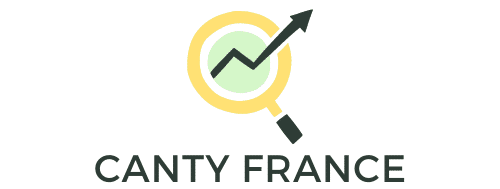How Should UK Businesses Navigate the Challenges of Multi-Generational Workforces?

In today's competitive business environment, UK organisations are facing an ever-changing landscape. One of the most prominent shifts has been the emergence of a multi-generational workforce. This dynamic has posed both challenges and opportunities for businesses.
Understanding the Multi-Generational Workforce
The multi-generational workforce is a reality that many organisations in the UK are starting to grapple with. The term refers to the coexistence of different generations in the workspace, namely the Baby Boomers, Generation X, Millennials and Generation Z. Each of these generations brings unique perspectives, values and communication styles to the workplace.
Cela peut vous intéresser : How Can UK Entrepreneurs Utilize Crowdfunding Platforms Effectively?
Baby Boomers, born between 1946 and 1964, are often known for their strong work ethic and loyalty to their employers. Generation X, the generation following the Boomers, are typically independent, resourceful and self-sufficient. Meanwhile, the Millennials, also known as Generation Y, are tech-savvy, value work-life balance and seek purpose in their work. Lastly, Generation Z, the youngest generation in the workforce, is marked by their entrepreneurial spirit, digital fluency, and their desire for diversity and inclusivity.
Embracing Diversity: A Key to Success
Across the UK, companies have the opportunity to harness the diversity of a multi-generational workforce. Each generation has distinct strengths and skills that can contribute to the overall success of an organisation.
Sujet a lire : What Are the Ethical Implications of Data Analytics in UK Business Practices?
For instance, Baby Boomers with their wealth of experience can serve as mentors to younger employees. Generation X, with their independent mindset, can drive innovation and change within the organisation. Millennials, with their affinity for technology, can help companies keep pace with digital transformation. Meanwhile, Generation Z can infuse fresh perspectives, pushing organisations to think outside the box and remain relevant.
Challenges of a Multi-Generational Workforce
While a multi-generational workforce brings many benefits, it also presents some challenges. One of the most common issues is intergenerational communication. With different generations favouring different modes of communication - from face-to-face meetings to emails, to instant messaging - it can lead to misunderstandings and friction within the workforce.
Another challenge is differing work ethics and values. What one generation considers a critical part of their job, another may see as unnecessary or outdated. For example, Boomers may value long hours and dedication to the job, while Millennials might prioritise work-life balance and flexibility.
Building a Cohesive Multi-Generational Workforce
In order to maximise the benefits and minimise the challenges of a multi-generational workforce, organisations need to implement strategies to foster cohesion and unity among their employees.
One effective strategy is providing training and workshops that focus on generational awareness. By understanding the unique characteristics, values, and communication styles of each generation, employees can better relate to each other, leading to improved collaboration and productivity.
In addition, implementing flexible work policies can help bridge the gap between generations. For instance, offering flexible work hours can appeal to both Millennials, who desire work-life balance, and Boomers, who might be nearing retirement and looking for a less rigid schedule.
Conclusion
In the face of the multi-generational workforce, UK businesses must adapt and evolve. By understanding, embracing, and leveraging the diversity that comes with having employees of varying ages and generations, organisations can not only overcome the challenges but also seize the opportunities this dynamic presents.
Ultimately, a multi-generational workforce can enrich an organisation, fostering innovation, diversity, and growth. Therefore, businesses must navigate this new terrain with careful thought, understanding, and strategic action.
Managing Multi-generational Differences in the Work Environment
In managing a multigenerational workforce, understanding generational differences is crucial. Every generation has its own set of values, perspectives, and work styles that are influenced by the historical and socio-economic circumstances during their formative years. These generational differences can create a unique work environment, filled with a range of perspectives that can drive innovation and progress.
For example, Baby Boomers are typically seen as hard-working and loyal. Having lived through periods of significant economic growth, they often value job stability and long-term career growth. On the other hand, the Generation X, often referred to as the 'latchkey' generation, grew up in an era of dual-income families or single parents. They are known for their independence, resourcefulness, and adaptability.
Millennials, the generation born in the digital age, are tech-savvy and place high importance on work-life balance and purposeful work. They value flexibility, diversity and inclusion, and are often driven by their morals and values. Lastly, Generation Z, the digital natives, are entrepreneurial and innovative, often looking for ways to disrupt the norm and create new, more efficient processes.
To manage these generational differences, it's important to promote open communication and mutual respect. Companies need to create an environment where everyone feels valued and heard, regardless of their age group. This can be achieved through regular team meetings, feedback sessions and encouraging collaborative projects that involve multiple generations.
For employee engagement to be high in such diverse settings, businesses should also offer a variety of benefits and rewards that cater to the different needs and preferences of each generation. This requires a degree of flexibility and the ability to adapt benefits programs to suit a multigenerational workforce.
Leveraging the Strengths of Older and Younger Employees
It's important to remember that the strength of a multigenerational workforce lies in its diversity of skills, experiences and perspectives. Older workers often bring a wealth of knowledge and experience to the table, while younger generations can infuse creativity, innovation, and a fresh perspective into the workplace.
Older employees, particularly Baby Boomers, can serve as mentors for younger employees. Their years of hands-on experience and industry knowledge can be an invaluable resource for younger generations just starting in their careers. They can also provide guidance and leadership, helping to shape the future leaders of the organisation.
On the other hand, younger employees, particularly those from Generation Z, can help drive innovation and technological advancement within the company. Their digital fluency makes them adept at using the latest technologies and platforms, which can help businesses keep up with the rapidly evolving digital landscape.
In order to leverage these strengths, businesses must make a conscious effort to foster an environment of collaboration and knowledge sharing. This could include setting up mentorship programs, encouraging cross-generational collaborations, or providing training and development opportunities that target the unique skills and strengths of each generation.
Conclusion
In conclusion, navigating the challenges of a multi-generational workforce in UK businesses requires a balance of understanding, adaptability, and strategic planning. By understanding the unique traits and strengths of each generation, businesses can create a work environment that leverages these differences, rather than being hampered by them.
This involves fostering a culture of respect and open communication, adapting policies and benefits to cater to the diverse needs and expectations of each generation, and putting in place strategies to harness the unique skills and experiences that both older and younger employees bring to the table.
Ultimately, a multigenerational workforce can be a significant asset to any organisation. It brings together a variety of perspectives, experiences, and skills, which can drive innovation, improve problem-solving, and enrich the overall work environment. As such, it's crucial for businesses to effectively manage and harness this diversity, turning potential challenges into opportunities for growth and success.
